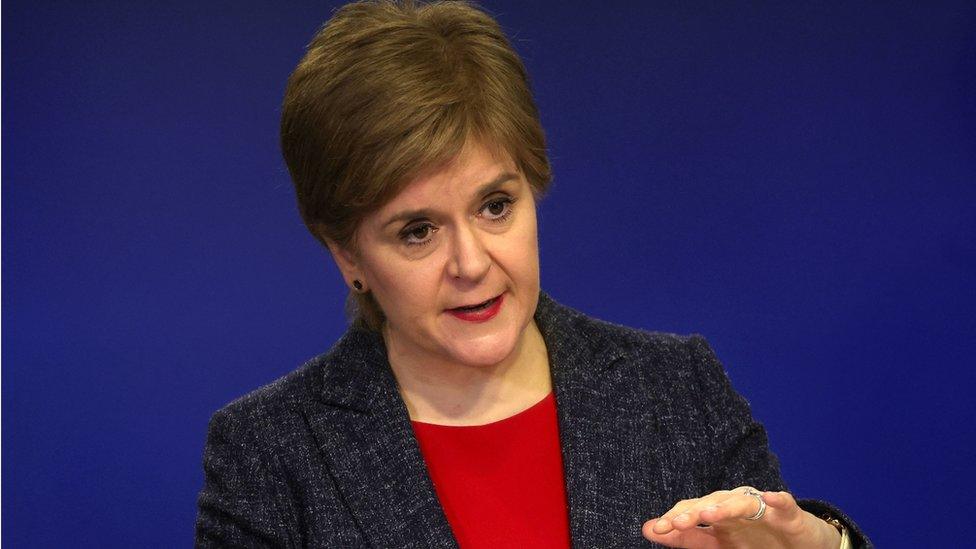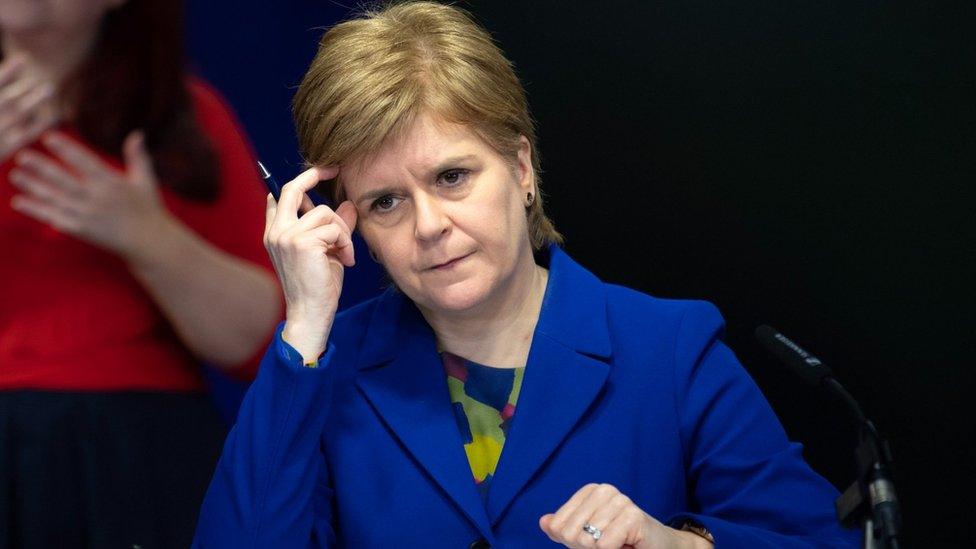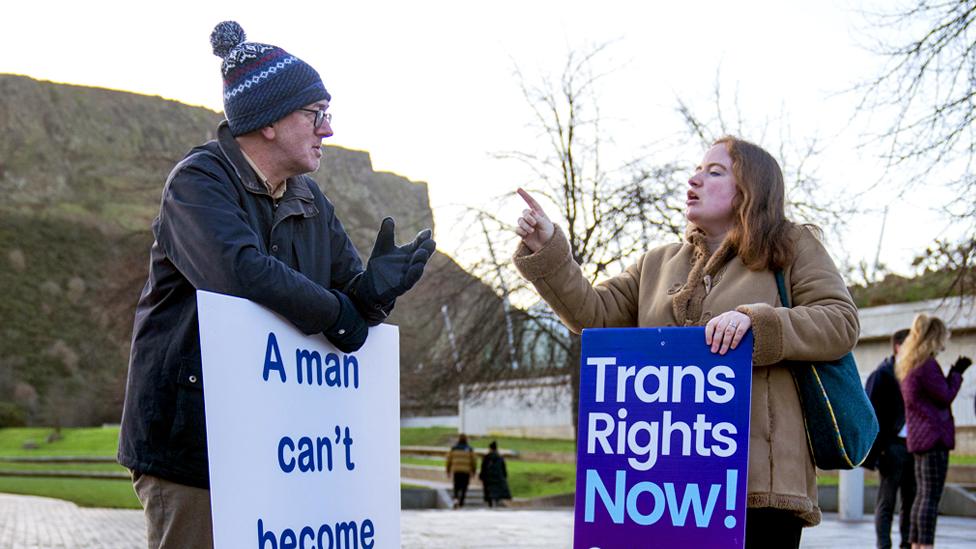Chris Mason: Section 35 - The wire in devolution never before tripped
- Published

Wandering up the green-carpeted spiral staircase of Bute House, the official residence of the first minister of Scotland, pictures of those who've been able to call this place home hang from the walls.
There are five pictures: those of Donald Dewar, Henry McLeish, Jack McConnell, Alex Salmond and Nicola Sturgeon.
Devolution, the sharing of power around the UK, is a quarter of a century old.
For all the fault lines between the Scottish Parliament and the government at Westminster, the tensions in the wiring of devolution, I'm here to talk about a wire never before tripped.
The secretary of state for Scotland has triggered Section 35 of the Scotland Act 1998, external - vetoing the Scottish government's plans to make it easier for people to change gender. (You can read more about that here)
Arguments about gender and arguments about the constitution are as complex as they are keenly fought over.
But the essence of this one is this: the issue of gender is devolved, it is a power that rests in Edinburgh.
The issue of equalities is reserved, to use the jargon, it is a power that rests in London.
The Scottish government insists its planned new law doesn't clash with the Great-Britain-wide Equality Act, while the government at Westminster insists it does - and has now set out why it thinks that, external.
That is the crux of the legal and political argument to come, exploring avenues never before travelled since Donald Dewar became first minister in 1999.
We can expect a judicial review, an appointment at the Court of Session in Edinburgh and, quite probably, a final calling point of the UK Supreme Court to sort this out.
In my interview with Nicola Sturgeon, she claimed the UK government's decision amounted to "a direct attack on the institution of the Scottish parliament" and could be the start of a "slippery slope" of interventions from what she described as "an increasingly hostile UK government wanting to undermine devolution".
But, while unprecedented, the UK government is using a lever within the existing law, a law backed by the SNP, albeit a long time ago in the late 90s.
And it is, undoubtedly, provocative.
The language from ministers in Westminster is noticeably more emollient in public than the words of the first minister, although some senior Conservatives privately suggest the Scottish government may have seen this row coming a mile off, knowing they would either secure the change in the law they would like (and was, it should be pointed out, strongly endorsed by the Scottish parliament) or provoke a constitutional argument allowing them to point at what they would see as the inadequacies of devolution.

Opponents of the reforms have protested outside the Scottish Parliament
Nicola Sturgeon claims bluntly the UK government is acting in "bad faith".
Within government at Westminster, there was agonising private debate about what to do in the days prior to the announcement.
While there are divisions in all the big parties on the issue of transgender rights, there is a genuine difference of instinct between the Tories in Westminster, who are cautious, conservative, when it comes to significant changes to the existing law, and the SNP, which is more liberal.
And while plenty of Tories really didn't like the Scottish bill, or the potential implications they fear around Britain, many flinched before triggering Article 35.
They knew they were creating a precedent, they knew they would be sparking a political row.
One figure suggested that, until now, the Conservative government had what was described to me as a "Sturgeon containment strategy" - limit the provocations that fan the flames of an argument about the constitution for as long as she remains first minister - perhaps, some suggest, another few years - and hope her successor isn't half as politically successful as she has been.
So much for that, when you then choose to open up a brand new front of constitutional anger.
Equally, I suggested to the first minister, when she claimed ministers in London were weaponising the lives of trans people, was she not weaponising her language in how she chose to respond, to further an argument for independence?
Was it not possible both sides had a passionate disagreement, in good faith?
Not so, she said.
But those allegations of bad faith are made in both directions.
In truth, there is a profound difference of instinct on trans rights visible here, and a significant legal disagreement too.
And both are wrapped up in diametrically opposed visions for the future of Scotland; the SNP dream of independence and the UK government's unionist view.
And so that imminent legal tussle will be magnified by the rhetoric of political argument on both sides, as a new frost develops between the residents of Bute House and 10 Downing Street.
- Published17 January 2023

- Published17 January 2023

- Published17 January 2023

